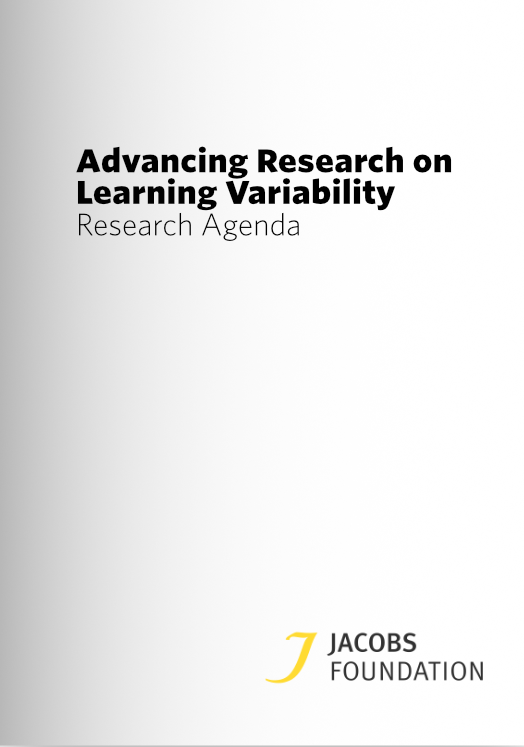Share Content
Article Link Copied
Learning Variability white paper

Variability is the hallmark of children’s development and learning. Individual children vary over time and across domains of functioning (within-person variability); groups of children learning together have different skills, behaviors, and characteristics (within-group variability); and children are expected to operate successfully in a world of divergent and ever-changing contexts (contextual variability). Yet educational systems rarely take into account these different types of variability. Research, likewise, can do much more to embrace learning variability across the subfields of learning and development. If education systems are to address children’s varied and changing needs, the research community must build on what is already known about population variability, child development, and learning to vastly expand our understanding of how children change and differ in learning settings, and how they can prepare to thrive in the multitude of contexts they will encounter throughout life.
This document was developed by the Jacobs Foundation with input and feedback from more than 50 experts on learning and development. This research agenda is intended to establish a scientific basis for designing education systems and programming that consider variability, and to support a multidisciplinary research community that seeks to improve children’s learning and development globally. The agenda will be used by the Jacobs Foundation as a guiding framework for its research work and to serve as a public resource to inspire conversation among researchers and research funders on supporting and embracing learning variability in child development and education.
